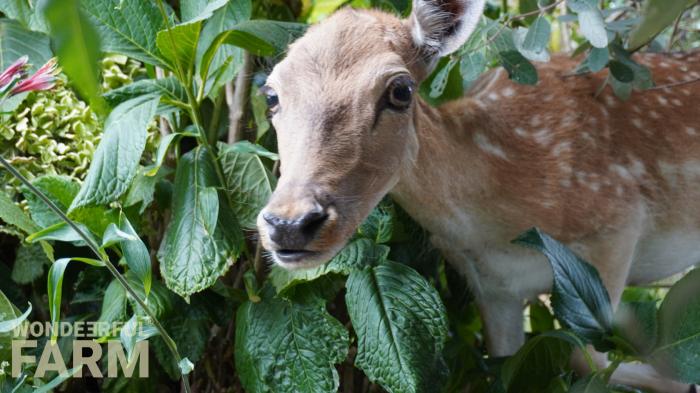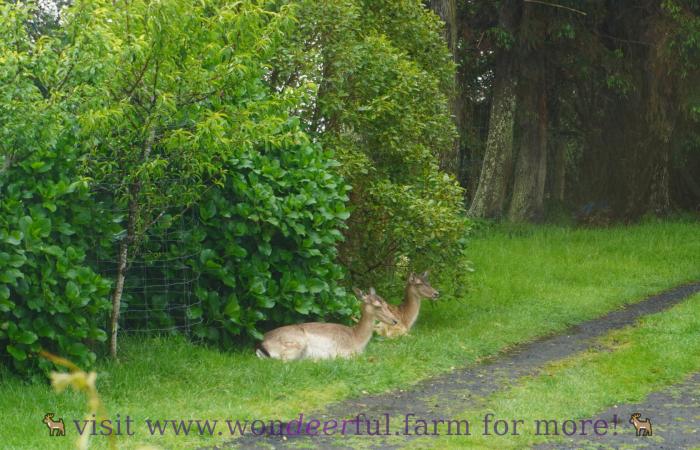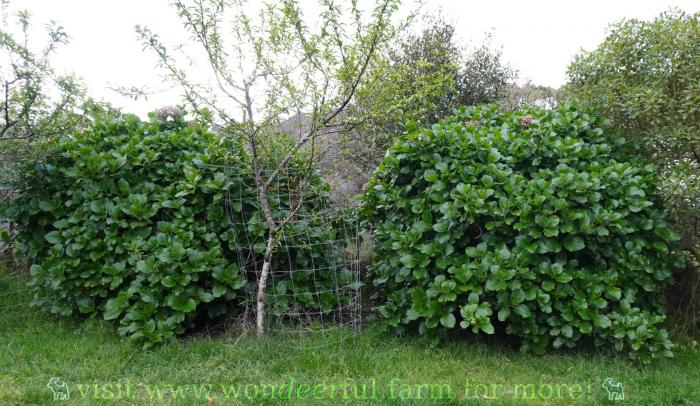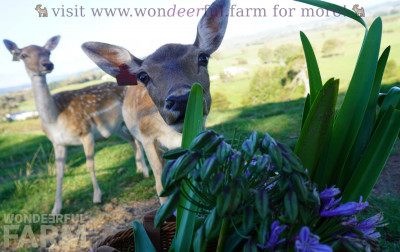Do Deer Eat Hydrangeas? Endless Summer Hydrangea Test.
» Deer stories » Deer resistant plants » Do Deer Eat Hydrangeas? Endless Summer Hydrangea Test.Plant type: shrubs
Deer resistant: yes
Our plant hardiness zone:
New Zealand: subtropical
U.S. Zone 10b
Hydrangea plants are hardy flowering shrubs that can transform into small trees. They come in a range of colors, and their large, showy blooms are sure to make a statement in any garden. This popular ornamental flower thrives in partial shade, requires regular watering and needs protection from winter winds. Routine pruning promotes their healthy growth.
If you're curious about whether deer eat hydrangea bushes, you're not alone. Many people ask this question to determine whether hydrangeas are considered resistant to deer.
So are deer attracted to hydrangeas? Are they safe to plant in areas where deer are often present?
We grow Bigleaf hydrangeas. The type of plant we have is also known as hydrangea macrophylla, endless summer hydrangea, French hydrangea, lacecap hydrangea or mophead hydrangea. This is the variety we can speak from our own experience about.

Are Endless Summer Hydrangeas Deer Resistant?
Seemingly, yes! Deer prefer other plants to endless summer hydrangeas. Thankfully, for once, they actually leave something we grow alone and let us enjoy an unfenced view of the plant. This doesn't happen too often because the list of plants deer frown upon is rather short.
In our garden, there are some avocados, pears and plums, native New Zealand trees like karaka - the poisonous fruits of which deer absolutely adore. So even if they've cleaned out all the accessible fruits and foliage of those trees, deer would rather eat grass than hydrangeas. That's saying something, because these animals are natural folivores, built to prefer leaves, not grass. Here we have several bushy hudrangeas, both young and established, with green, crispy leaves and soft flowers, and they're getting completely ignored by the deer.

This is good news because these vibrant plants are perfect for the fence line as they enjoy shade so can be planted where other, more sun loving plants wouldn't grow, and in our experience, hydrangeas can tolerate both strong winds, periods of drought and rain spells. So it's not only deer-resistant but generally hardy. Who doesn't like that?
The only hassle with it is pruning the dried out parts. We only bother in spring. That immeadiately pays off with new growth and luscious blooms. We live in a humid climate so we don't water. Hydrangeas just grow here well. Except in the harsh sun (we have dangerous UV levels in the downunder lands) flowers of all kinds that are not in the shade tend to lose color in summer.
Are All Varieties of Hydrangea Deer Resistant?
We've only been able to test our own variety of this shrub, the endless summer hydrangea (Hydrangea macrophylla).
There are other types of hydrangeas we can't be sure are deer resistant:
- arborescens (smooth, Annabelle),
- climbing hydrangeas (Petiolaris and Anomala),
- paniculata,
- quercifolia (Oakleaf).
Forums discussing the issue indicate that both Oakleaf and Annabelle hydrangeas are vulnerable to deer damage. The topic starter has asked if their Oakleaf hydrangea will still bloom after the top has been eaten by deer. One user named Sally Q has reported that her Annabelle hydrangeas, of which there were 10, have had every single bud eaten by deer. It is safe to conclude that these particular hydrangea varieties are not resistant to deer.

Image by Ben Kerckx from Pixabay
How to Keep Deer Away from Hydrangeas
You will read this advice to buy or make a repellent solution and spray the plants, or to - gross! - hang some human hair around the backyard to alert these wild animals to your presence. Truth is, if deer are hungry enough, especially as hungry as to consider hydrangeas for dinner, they're not going to care about a little pepper or egg or garlic residue on some leaves (one of our gourmet does once ate garlic toasts with pleasure). They'll find least affected foliage and also next bit of rain will wash that thing right off, and one day you'll be to busy or tired or forget to re-apply.
True, feral deer prefer to stay away from people, but they're observant, and if your place is otherwise best food source available, they'll watch and "make notes" that despite some faint human smell there's never anybody around at 3 in the morning, so they'll come and eat then, deer become noctural when circumstances dictate that.
As we've been writing over and over, the only sure way to keep deer out of your garden is to have it properly fenced off. And I mean, properly, not a metre high barrier, think 2 metres.
You can read more about keeping deer out of your yard in this post.
Will Hydrangeas Grow Back if Eaten by Deer?
If your hydrangea was unlucky enough to be attacked by deer, whether it will will grow back will depend on the extent of the damage. If the deer only ate a few leaves or flowers, then the hydrangea should be able to recover without issue.
However, if the deer ate a significant portion of the plant, especially the branches or stem, the plant may struggle to recover. In this case, it's important to prune back the damaged parts of the plant and provide it with proper care, such as regular watering and fertilization, to help it recover.

Photo by Tiểu Bảo Trương
What Plants Do Deer Not Eat?
That's a great question! In a nutshell, the plants that deer do not eat are those that they cannot access or in the garden they don't know about. Deer will typically eat most plants if they are hungry enough, but there are some plants that they tend to avoid.
At our website, we are constantly publishing new real-life experiments with deer and plant varieties to establish their resistance to deer browsing. Based on our experience, we can recommend some plants that are typically less palatable to deer, such as nasturtiums, Endless Summer hydrangeas, Calla Lilly, Coneflower (Echinacea), marigolds and more under our dedicated website section of 'Deer resistant Plants'.
It's important to note that deer preferences can vary depending on their geographic location, the time of year, and the availability of other food sources.
Summary.
Do deer eat hydrangeas? The short answer would be yes, but in our experience this one variety is deer resistant. Does this mean deer could never possibly nibble on Endless Summer hydrangeas? Not necessarily, because they've been known to eat stuff they dislike if very hungry and out of other options (our deer are hardly starving). Deer are not fussy eaters. But hydrangea macrophylla, AKA Endless Summer hydrangea is definitely not your best choice if you're looking to attract deer. Rather, they're one of your best bets at having a deer-free garden, so if you're looking for deer resistant hydrangea varieties - plant this one.
Another great thing about this shrub is that slugs and snails don't bother it eaither.
And today we've found a monarch butterfly on our hydrangea (swan plant is nearby). 🦋🦋🦋
Update Spring 2023: Our hydrangeas are looking lush, remaining unfenced, only the fruit trees need protection form our deer!
Used only as a bit of cover from rain by them:

⚘ 🦌 Do you have hydrangeas in your garden? Are you thinking of planting a few for the first time? Did you know you could change flower color of your hydrangea?
Last modified 02 November 2023 at 15:32
Published 04 February 2023
Add your comment
Plants alphabetically
More «Deer resistant plants» stories
Are French Marigolds Deer Resistant?
Do deer eat French marigolds or are they deer resistant? Testing with live deer. Watch video of deer vs marigolds. Ready to plant some?
read more...
How to Keep Deer Out of Garden (With & Without a Fence, Good & Bad Ideas)
Deer farmers tips for keeping deer out of your garden, what to do without a fence. Several tactics for driving deer away from your yard & how to keep deer out of garden at night.
read more...
Do Deer Like Agapanthus? African Lily Deer-resistance.
Do deer eat agapanthus plants? What's more deer resistant: Lilly of the Nile or Ornamental Onion? Similiarities and differences between the two perennials. Recommendations to gardeners struggling with deer damage.
read more...
 '
'



